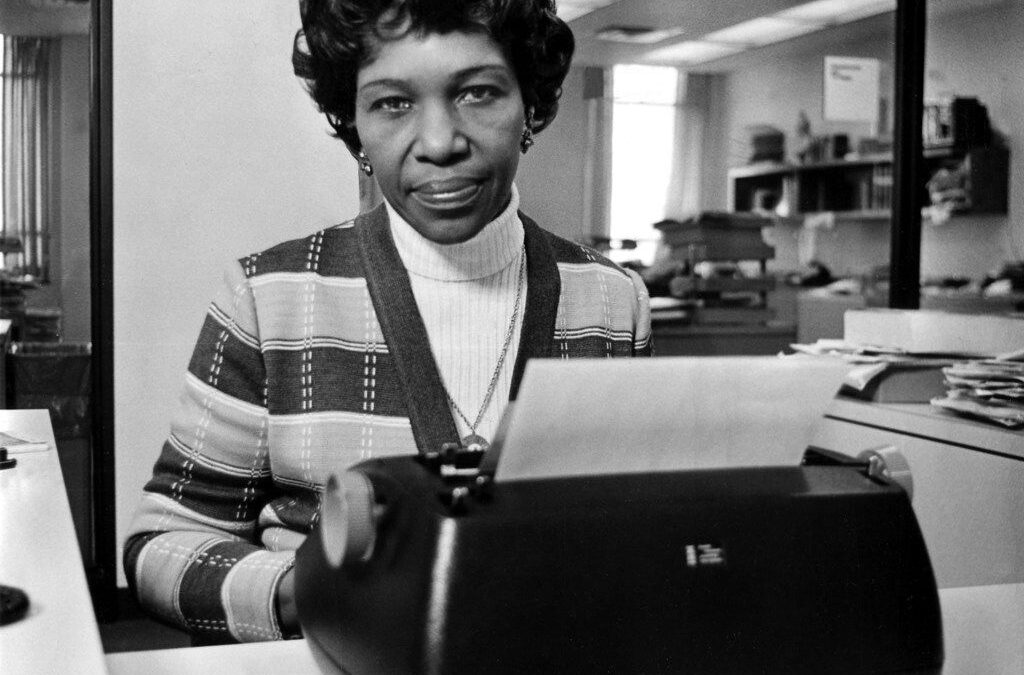Image from The Dallas Morning News Archives
Born: 1917 (Dallas)
Died: 2004 (Dallas)
Noted For: Julia Scott Reed is noted as the first African-American journalist to work at The Dallas Morning News, as well as an influential writer about Dallas civic affairs, civil rights, and social issues.
Julia Scott Reed was not the first or last Dallas Morning News columnist to wield influence with her words, but she is undoubtedly among the most noteworthy and memorable.
The Booker T. Washington alum launched her journalism career in 1950 when she joined the staff of a weekly African-American newspaper in Missouri, covering news from Texas. The following year, she landed a job as secretary at the Dallas Express, then the city’s top African-American newspaper. She was quickly promoted to the role of social reporter, and eventually began covering civil rights and politics, later becoming editor of the city desk. In 1963, she was one of the journalists present when Jack Ruby assassinated Lee Harvey Oswald at Dallas police headquarters; her subsequent coverage of the event bolstered her status as a leading figure among the ranks of black journalists in Dallas.
In 1967, during the height of the civil rights movement, Julia made history when she became the first African-American journalist hired at the Dallas Morning News, where she penned a column called “The Open Line” that appeared three times a week.
For the next decade, Julia’s column delivered news and perspectives about the Dallas black community, covering important topics and events in the areas of politics and elections, race relations, religion, and current affairs.
Her work has been credited with giving voice to a formerly disenfranchised population in one of the state’s leading newspapers, as well as helping white Dallas residents gain a better understanding of the challenges, contributions, and everyday life of the black community.
From the Dallas Morning News: “…her column was able to connect people to employment, inspire involvement in a local blood drive when there was a blood shortage, and recruit volunteers for charity events. In that same year, she helped more than six black foster children get placed in adoptive homes after writing a column about the many black children in the Dallas foster system who were having difficulty finding placement with adoptive families.”

Dallas Morning News columnist Norma Adams-Wade, who has frequently cited Julia’s influence on her own career, paid tribute to the trailblazing journalist after Julia’s passing.
Julia was also a leader outside of the newsroom, serving as a precinct chair for the Democratic Party (a position she held for more than 20 years) and as the inaugural president of the Dallas Urban League. She was also the first African-American member of the Dallas Press Club and the Altrusa Club of Dallas. She passed away in 2004 at the age of 87. In 2018, the Dallas Morning News named a conference room in her honor following the news outlet’s relocation to a new headquarters.
Additional Learning: “Texas Women: Their Histories, Their Lives” by Elizabeth Hayes Turner, Stephanie Cole and Rebecca Sharpless

